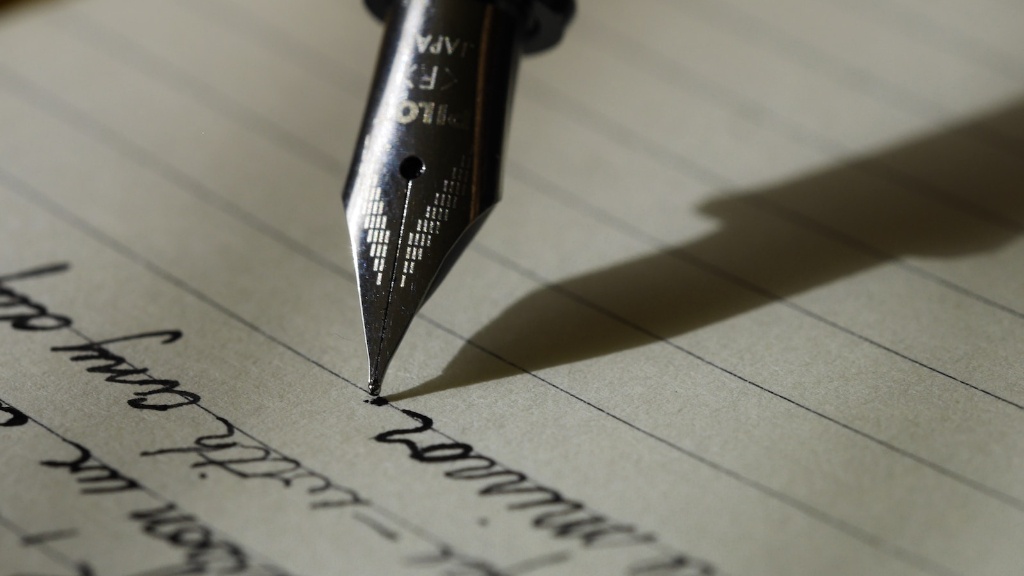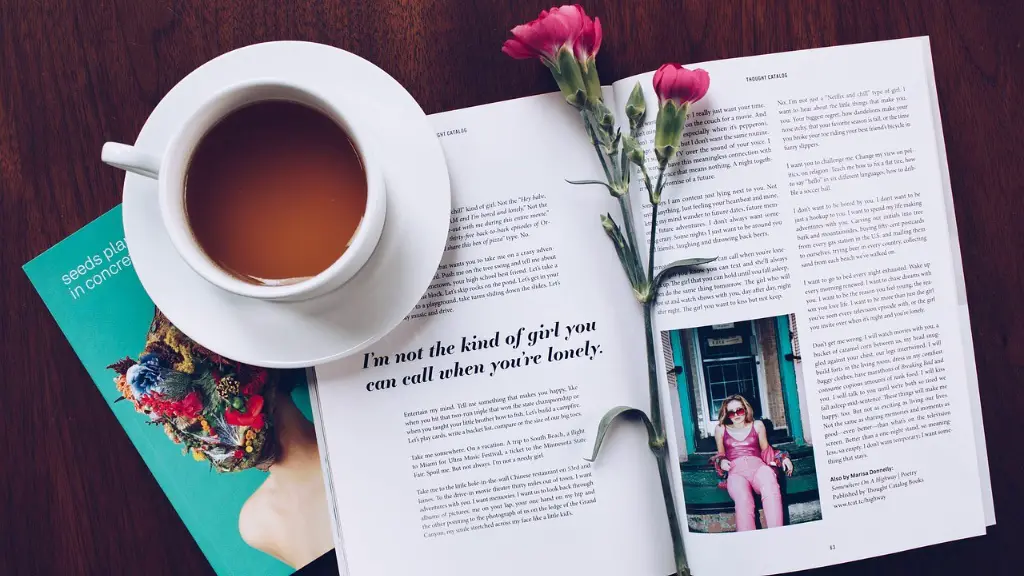Definition of Folk Poetry
Folk poetry is a form of poetry that is developed and expressed by individuals and groups in society, often in words that are traditional, or which have been passed down through generations. It is derived from the popular culture or common customs of a particular group, and can include elements such as folk music, oral stories, and dialects. Folk poetry is often associated with storytelling, and features characters, themes, and common motifs related to a particular cultural environment and time period.
Origins of Folk Poetry
Folk poetry has existed since ancient times, with its origins dating back to the pre-literate cultures of the Middle East and Asia. It was then and remains today a way for individuals and communities to express their identities, histories, customs, and beliefs. In some places, folk poetry is kept alive through oral transmission, passed down from one generation to the next, with only certain parts of the poem surviving over the centuries.
Types of Folk Poetry
Folk poetry comes in many forms, ranging from traditional ballads to narrative and lyrical epics. Ballads, which were popular in the medieval period, tell stories of love, adventure, heroism, and tragedy. They often feature universal themes such as love, loss, and courage. Epics are longer, narrative poems that are often prayers, chants, or songs. An example of an epic is the Persian national poem, the Shahnameh.
Folk poetry can also take the form of nursery rhymes and nursery songs, which are popular among children and adults alike. They can be simple or complex, often focusing on topics such as nature, animals, and moral instruction. Lullabies are typically aimed at soothing infants and toddlers to sleep. These can range from calm and soothing melodies to uplifting, positive messages.
Notable Examples of Folk Poetry
Some of the best-known examples of folk poetry include the Chinese folk poem, ‘The Peach Blossom Spring’, the Norse epic poem, ‘Beowulf’, the Welsh folk epic, ‘The Mabinogion’, the Anglo-Saxon epic poem, ‘The Dream of the Rood’, and the traditional American ballads, ‘John Henry’ and ‘Casey Jones’. These examples all tell stories in poetic form, passing on traditions and customs from one generation to the next.
Role of Folk Poetry
Folk poetry plays an important role in uniting cultures and communities, creating a sense of shared identity and experience. It also serves as an outlet for expression, allowing individuals and groups to document their feelings and emotions in a creative and powerful manner. The words and themes of folk poetry can also offer comfort and solace to those in need, giving listeners hope and providing them with a connection to the past.
Applications of Folk Poetry
Folk poetry has been used in educational curriculum, literature, and music to expose the public to different cultures and their distinctive poetic styles. It has been adapted into musical theatre pieces, used in spoken word performances and storytelling events, and adapted into modern poetry. As folk poetry is developed and passed down through generations, its words, rhythms, and themes continue to inspire and engage new audiences.
Interpretations of Folk Poetry
The interpretation of folk poetry can be a subjective experience. Some may focus on the literal symbolism and meaning of each line and the collective story, while others may relate it to their own life experiences and derive their own personal interpretations. This is an important aspect of understanding the richness of folk poetry, as the individual listener is able to develop an intimate and meaningful relationship with the poem.
Representation in Pop Culture
Folk poetry has been represented in pop culture in various forms over the years. In literature, folk poetry can be found in works by authors such as J.R.R. Tolkien, C.S. Lewis, and William Shakespeare, as well as in works by contemporary authors such as J.K. Rowling, Neil Gaiman, and Margaret Atwood. In music, examples of folk poetry can be found in the work of musicians ranging from Bob Dylan and the Beatles to Bob Marley and the Wailers.
Legacy of Folk Poetry
Folk poetry has been passed down through generations and has proven to be an enduring form of cultural expression. Its words and themes continue to capture the hearts and minds of audiences both old and young, as they provide an intimate and powerful window into an individual or group’s culture, history, and beliefs. As folk poetry continues to be shared and interpreted, its legacy and impact remain strong.
Perspectives from Experts
Experts suggest that folk poetry enables people to uncover something about themselves that was previously unknown and to find comfort in understanding their own beliefs and values. By connecting with a poem, readers can gain insight into the culture and beliefs of their ancestors, discovering a deeper connection to their own identity. By embracing the power of a folk poem, individuals can gain a better understanding of who they are and why they belong.
Analysis and Insights
Folk poetry provides an invaluable window into cultures and communities, documenting their histories and beliefs in a poetic and powerful manner. Its words and themes can evoke emotions and provide comfort and solace to listeners, helping to build a sense of shared identity and community. Research suggests that folk poetry can help individuals uncover something about themselves, as well as providing insight into the culture and beliefs of their ancestors.
Techniques Used in Folk Poetry
Folk poetry is often characterised by its use of common phrases and expressions, as well as its reliance on metaphors, imagery, and symbolism. It uses combinations of different poetic forms and metres, such as ballad, narrative, and lyrical. Repetition of words, phrases, and lines are also commonly used to create rhythm and give the poem greater emphasis.
Effects on Audience
Folk poetry has the power to evoke strong emotions in audiences, depending on the themes and words it contains. Those who can relate to a poem may feel comfort and relief, whereas those who are unfamiliar with the poem may feel inspired and moved. Whether it’s a heart-warming song about family, a story of heroism and courage, or a lament about love and loss, folk poetry can leave a lasting impression on those who listen.
Methodology of Folk Poetry
Folk poetry is often performed in a spoken-word format, sometimes accompanied by music. It’s often performed in groups, with individuals taking turns reading and interpreting the poem in their own unique way. This is a great way to experience the many interpretations of a single poem and to gain a better understanding of its words and meanings.
Modern Perspectives on Folk Poetry
The popularity of folk poetry has endured throughout the ages, and its words and themes can still be found in modern literature and music. With the use of technology, folk poetry is now more accessible than ever before, allowing fans to interact with their favorite songs and poems from a distance. Contemporary artists are also using folk poetry to create their own unique works and styles, exploring new ways to interpret an age-old art form.
Relevance of Folk Poetry
Folk poetry is still very relevant today. It can be used to explore identity and culture, to express emotion, to perpetuate shared customs and beliefs, and to build a connection between generations. It can heal, inspire, and unite its listeners, providing a powerful and meaningful form of communication that goes beyond words.




